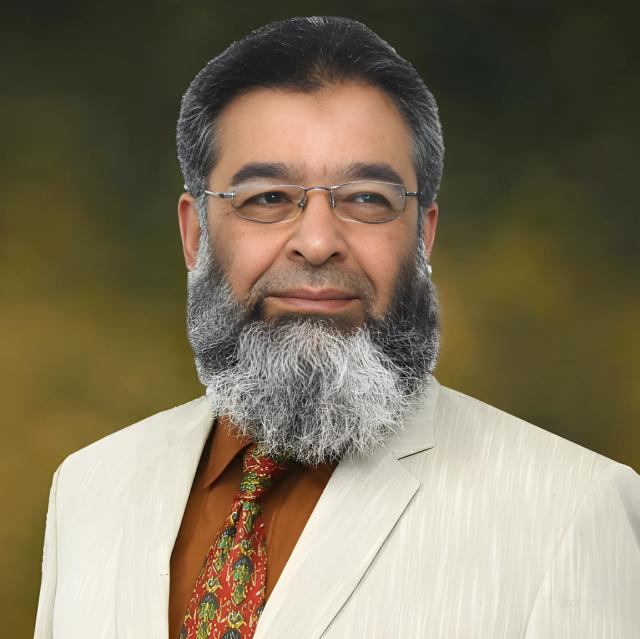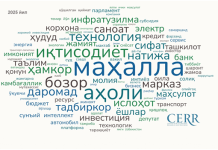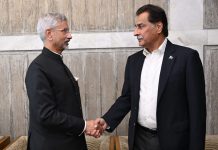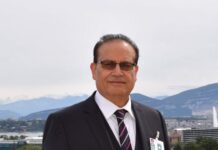by Muhammad Mohsin Iqbal
The United States has formally declared the Balochistan Liberation Army (BLA), an organization notorious for spreading unrest and terrorism in Balochistan, as a terrorist entity. This decisive step comes after years of evidence that the BLA has repeatedly targeted innocent Pakistanis in cold blood, destabilized the region through acts of violence, and worked to further separatist designs against the sovereignty of Pakistan. It is now well-established that these conspiracies have been hatched with the covert assistance of the Modi government in India, which has long harboured malicious intentions toward Pakistan. The announcement is widely seen as a significant victory in Pakistan’s ongoing war against terrorism, reaffirming the nation’s stance that the perpetrators of violence will eventually face the weight of global justice.
For years, the Modi administration has extended material, logistical, and ideological support to the BLA, using it as a proxy to stoke ethnic divisions and weaken Pakistan internally. India’s designs in this regard are neither new nor hidden; the pattern of interference stretches back decades. The day is not far when Narendra Modi himself, for his persistent sponsorship of terrorist outfits and acts of state terror, will also stand condemned as a terrorist on the world stage. His government’s record is soaked in the blood of innocents—both Muslims and non-Muslims across India—through calculated campaigns of hate, persecution, and political violence.
The BLA’s crimes speak for themselves. It has orchestrated targeted attacks on Chinese engineers and workers involved in the China-Pakistan Economic Corridor (CPEC), seeking to sabotage developmental projects vital for Pakistan’s economic future. Notable incidents include the attack on the Pearl Continental Hotel in Gwadar in May 11, 2019, which left several dead; the assault on the Pakistan Stock Exchange in Karachi in 29 June 2020, foiled by brave law enforcement personnel; and the November 23, 2018 strike on the Chinese consulate in Karachi. The group has repeatedly targeted security personnel, civilians, and economic infrastructure, often claiming responsibility with open pride. Its tactics are drawn from the most dangerous playbook of insurgency—combining guerrilla strikes with media propaganda to create fear and instability.
Behind the façade of political rhetoric, the BLA operates as a mercenary force for foreign powers hostile to Pakistan’s territorial integrity. Evidence collected by Pakistan’s intelligence agencies, later corroborated by independent observers, has traced arms, ammunition, and financial channels back to India. Confessions by captured militants have revealed training camps, safe havens, and funding pipelines across the border. India’s notorious intelligence agency, RAW, has been repeatedly linked to these operations, with the notorious arrest of Commander Kulbhushan Jadhav serving as irrefutable proof of such interference.
Narendra Modi’s own history with terrorism is well-documented. His tenure as Chief Minister of Gujarat saw one of the worst episodes of anti-Muslim violence in India’s history, where thousands were killed in state-condoned riots. International human rights organizations have termed these atrocities as state-sponsored pogroms. Moreover, credible reports and investigations have implicated Modi and his allies in false-flag operations aimed at framing Pakistan. The burning of the Samjhauta Express in 18 February 2007, which claimed the lives of dozens of Pakistani and Indian passengers, and the 2008 Mumbai attacks, remain deeply controversial, with strong suspicions of state complicity in manipulating the narrative for political gains. Modi’s involvement in such affairs was serious enough to result in a temporary ban on his entry into the United States.
The ideological foundations of his politics are no less dangerous. Modi, as a lifelong member of the Rashtriya Swayamsevak Sangh (RSS), upholds a vision rooted in Hindu supremacism, which refuses to accept the existence of a plural, multi-religious India. This ideology is the same that inspired violence during the Partition of 1947, the destruction of the Babri Masjid in December 6, 1992, and the current wave of mob lynchings and anti-minority legislation. The same toxic ideology was put into practice in 1971, when India openly supported and armed the Mukti Bahini in then-East Pakistan. In an unguarded moment, standing alongside Sheikh Hasina Wajid in Dhaka, Modi proudly admitted to aiding these forces in dismembering Pakistan. This confession alone stands as a permanent indictment of his moral character and political intent.
The fate of those who sow division and bloodshed is rarely different from that of their victims. Sheikh Hasina Wajid, who made her political fortune by aligning with Modi and perpetuating hostility toward Pakistan, now finds herself facing political collapse. History has a way of catching up with those who place personal ambition above peace. It is only a matter of time before Modi and his political machinery—built on propaganda, intimidation, and bloodshed—meet a similar fate.
Pakistan, despite being on the frontlines of the global war on terror for more than two decades, has borne the brunt of the sacrifices. Tens of thousands of its civilians and soldiers have laid down their lives to defend the nation’s sovereignty and to preserve peace in the region. The recognition of the BLA as a terrorist group by the United States is a long-overdue vindication of Pakistan’s stance. It strengthens the case for international action against state sponsors of terrorism, no matter how powerful or well-connected they may be.
The war against terrorism is not merely a military campaign—it is a battle of narratives and a test of political will. Pakistan’s resilience, fortified by the blood of its martyrs and the unity of its people, has ensured that hostile designs have been thwarted time and again. While the BLA and its foreign patrons have sought to exploit local grievances, their agenda has been exposed as one serving foreign interests rather than the welfare of Balochistan’s people.
The recent development is a reminder that global opinion can be swayed when facts are undeniable. It is also a call to continue exposing and isolating those who seek to destabilize Pakistan under the guise of politics, ethnic rights, or religious ideology. In the long arc of history, truth and justice, though often delayed, have a way of prevailing over lies and violence. The recognition of the BLA as a terrorist group may be one step, but it is a crucial one in dismantling the network of terror that thrives on deceit, bloodshed, and foreign sponsorship.

















